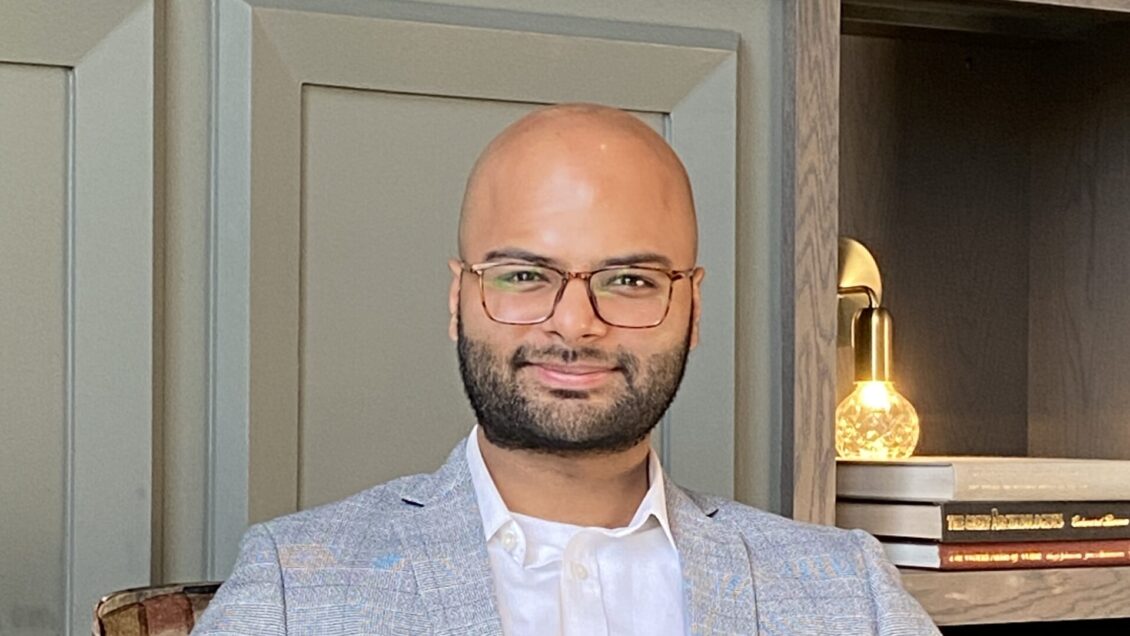Clemson University’s Vishal Thomas, a Ph.D. candidate in bioengineering, took top honors in the Three-Minute Thesis®—or 3MT—regional competition held during the Conference of Southern Graduate School’s annual meeting last week in Greenville.
Thomas’ win in this regional event, where he competed against 3MT winners from more than 60 universities in the southern region, means he will represent Clemson and the CSGS Southern Region at the Council of Graduate Schools’ North American annual meeting, scheduled for December in St. Louis. He won Clemson’s own 3MT competition last semester to earn his shot at the regional title.
In the 3MT competition, students must summarize and explain the significance of their research in three minutes or less, using only one static slide to support their talk to a general audience. A panel of judges evaluates participants based on criteria such as comprehension, engagement, and communication effectiveness. In the preliminary heats, the field was winnowed down to 13 finalists who competed in a final round.
Thomas’ winning presentation, titled “A Novel Implant for Cartilage Repair,” delved into his work to create and implement a more durable and better-functioning knee implant made from a novel biomaterial. He recently discussed his research on FOX Carolina’s Access Carolina show (see video here).
Judges represented the media (Carol Clarke and Sydney Shadrix of WYFF; Blair Knobel of Vessel Magazine and the Knobel Media Group; Margaret Burnquist of FOX Carolina); government (Robert Halfacre, mayor of Clemson; Logan Kipling, U. S. Senate communications and outreach staffer; Russell Stall, Greenville city council member), and Annie Sutton, director of Anderson County Library System), industry (Pat Randall and Robert Randall of Princeton Consultants and the Graduate School’s advisory board; Britton Swingle from Michelin; David Stefanich of Rymedi) and higher education administration (Council of Graduate Schools President Suzanne Ortega; Ariel Turner from Clemson Libraries and Kim Banks, Clemson’s director of communications for academic affairs). Clarke, Ortega, and Knobel judged the final round.
Thomas is the Department of Bioengineering’s Frank H. Stelling and C. Dayton Riddle Orthopedic Doctoral Scholar, recipient of the Michael A. Zebuhr Memorial Fellowship for Excellence in Graduate Research from the Department of Bioengineering, a lab manager in Jeremy Mercuri’s OrthO-X lab, an instructor of record for engineering graphics and machine design, and president pro tempore of the Graduate Student Government.
Chatting with the Champ
Vishal Thomas on why communication skills are critical for researchers, what 3MT has taught him
about communication, and what he needs to improve on before the North American finals
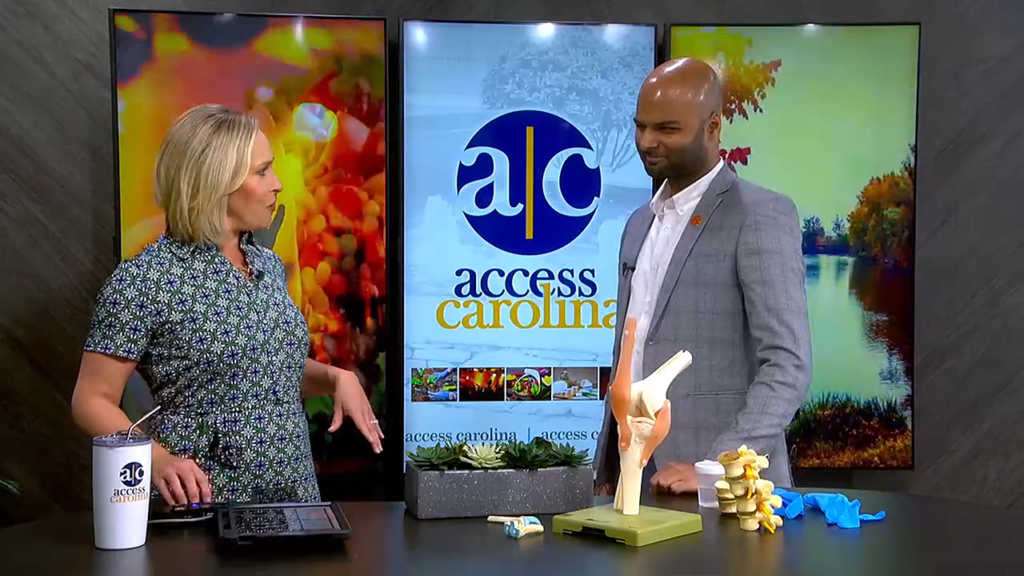
Why do you think presentation and science communication skills are important for today’s researchers?
Researchers spend significant time studying their fields, which often changes the way they communicate. They begin using technical words from their studies in everyday conversations. While this may be acceptable when speaking with fellow scientists, it can be confusing for the general public, leading to disinterest and feelings of exclusion. This can erode trust in both science and scientists.
That’s why developing strong science communication skills is a valuable investment for any researcher. When done effectively, it invites the audience into the researcher’s world, sparking curiosity and interest while reassuring them that progress is being made in their areas of concern. A skilled science communicator radiates warmth and can play a crucial role in influencing behavior and shaping decision-making across various societal levels.
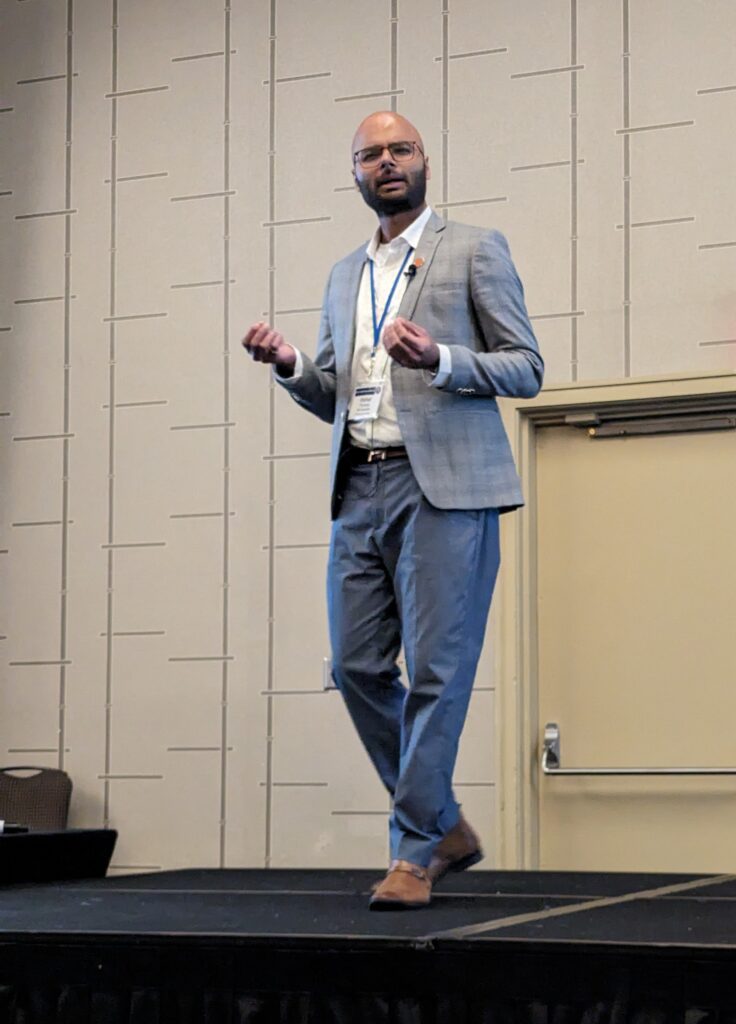
What is the most important skill/lesson you’ve learned about connecting with an audience?
There are three important factors to consider when connecting with an audience:
1) Words: Keep them simple and include stories and anecdotes. People remember stories better than facts, so a good storyteller can captivate an audience easily.
2) Vocals: How you say something matters as much as what you say. Intonation, the rise and fall of your voice, can convey emotions and strongly influence your audience.
3) Body Language: Good body language is memorable. Make eye contact, use hand gestures to emphasize points, and your audience will instinctively trust and find you engaging and enthusiastic.
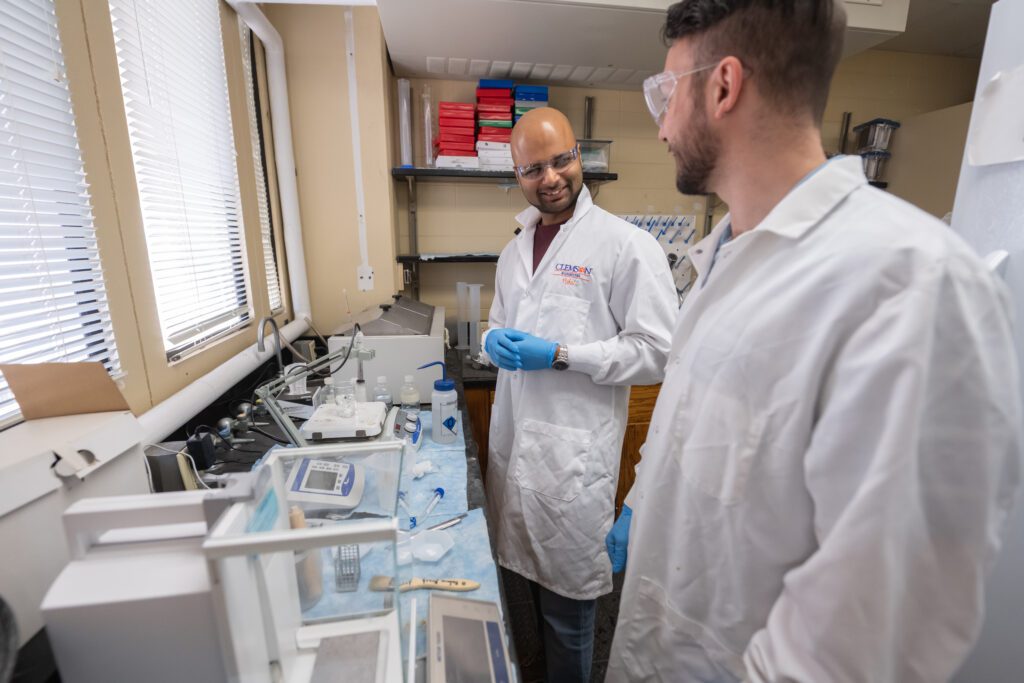
How has the work you’ve done with 3MT helped you in your research and your career search?
Working with 3MT has been invaluable in condensing years of research into a concise 3-minute elevator pitch. This pitch can be used to explain my work quickly to neighbors, friends, or even potential investors. Unless someone requests a detailed explanation, it’s best to keep it short and sweet. I often rely on my 3MT pitch during networking events.
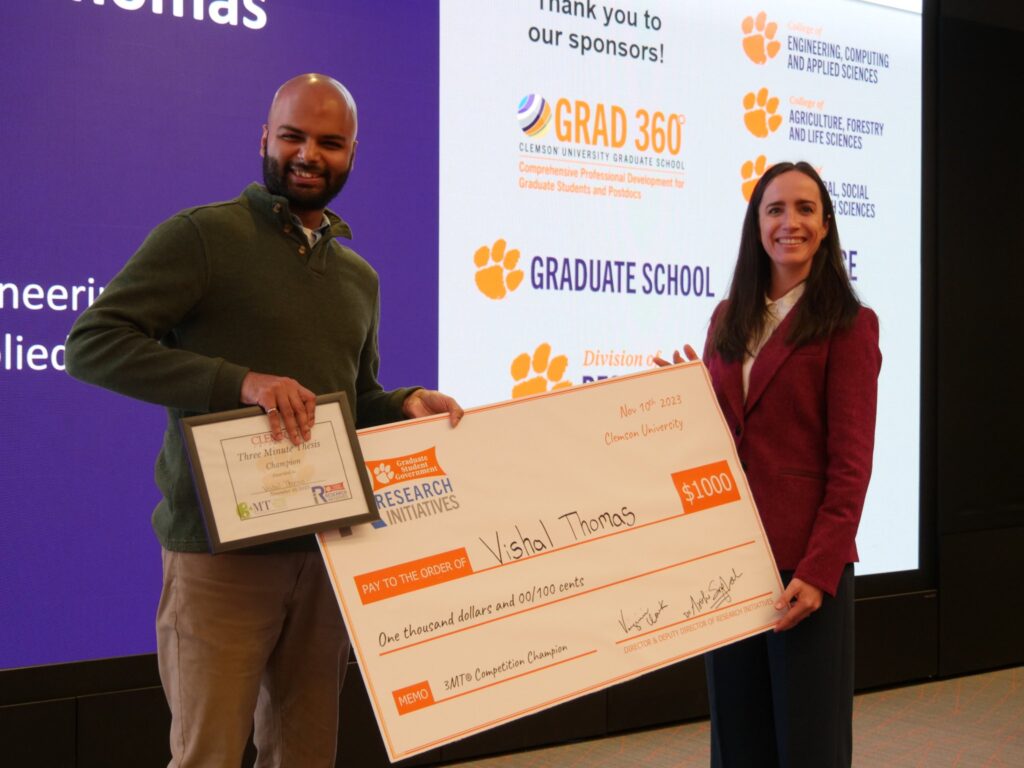
Is there anything specific about your presentation, or any particular skill, you’ll be working on between now and the North American showcase late this year?
There is a fine line between public speaking and acting. And it has been pointed out to me that I tend to fall a little too much on the theatrical side (especially with my hand gestures!). For the North American showcase, I’ll focus on finding that right balance.

